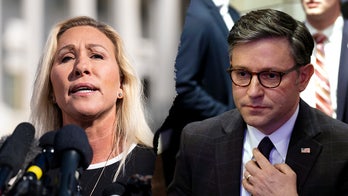Republican Presidential candidate Jon Huntsman spelled out what an energy policy under a Huntsman White House would look like.
Speaking to a group of about 200 University of New Hampshire students and members of the community, Huntsman said he would call for eliminating regulations on domestic energy production, fund research into new technologies and incorporate various energy sources into American energy policy.
"I will move to open our fuel distribution network to all forms of energy, bio-fuels, natural gas and electricity. I will systemically begin to eliminate every subsidy for energy companies, whether it be oil, natural gas, wind or solar."
The remarks came after Huntsman toured the university's cogeneration plant, which converts landfill gas into energy to power campus buildings.
He called on expanding the use of "fracking" method to extract more natural gas from shale, which has come under fire for its environmental impact.
Huntsman acknowledged the need to balance energy production and safety. "There is a balancing act between utilizing our resources and maintaining the integrity of our oceans and forests," he said.
Yet,he made it clear that he did not believe government should be standing in the way.
"Regulations and approvals from new wells and pipelines need to be streamlined and directed to move at the speed of business," he said. "There is no reason drilling cannot be safely conducted in the Gulf, across the states, and in Alaska."
Huntsman made a case for moving away from America's dependence on foreign oil, saying it plays a critical role in our economic stability.
"Energy drives everything we do," he said. "How can we stabilize our economy when its most fundamental building block is controlled by despots and dictators half a world away?"
To achieve these proposed changes, he promised some aggressive executive action his first day in the White House.
"Under my presidency, the United States will get out of the subsidy business. And, if necessary, I will use my executive authority to act unilaterally. We will stop using limited federal resources to prop up individual companies, directing that money instead to basic energy research."




